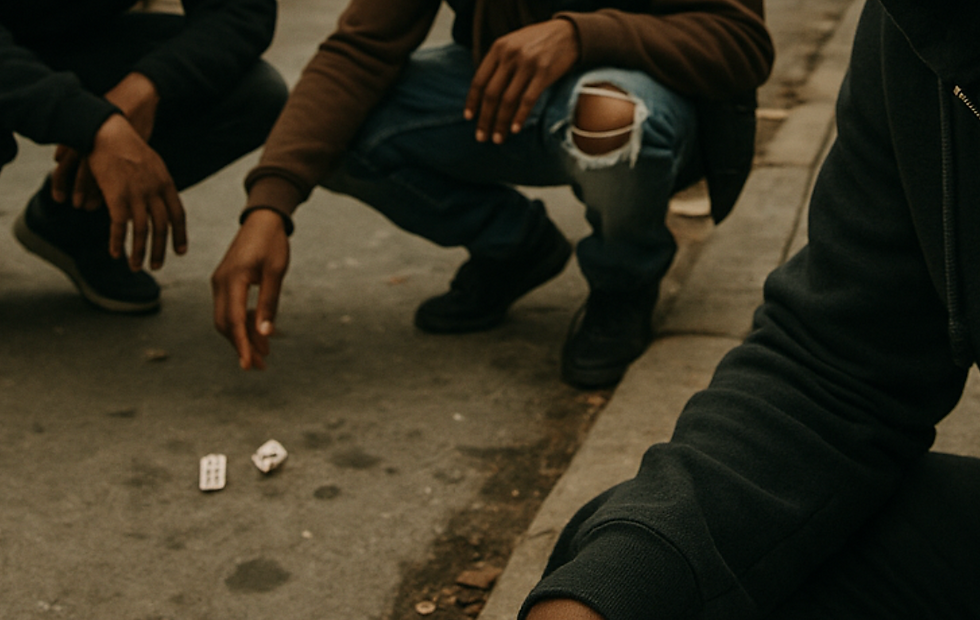Cross-Addiction Explained: From Drugs to Gambling
- ace marketing
- Jul 17, 2025
- 3 min read

Cross-Addiction Explained: From Drugs to Gambling
Addiction isn’t always limited to one substance or behavior. Many people recovering from one addiction find themselves drawn to another—sometimes without even realizing it. This phenomenon is called cross-addiction, and it can be just as dangerous and destructive as the original habit.
Cross-addiction happens when someone who has overcome one addiction—like alcohol, opioids, or stimulants—develops a new dependency, such as gambling, sex, shopping, or even exercise. The behaviors may look different, but they often serve the same purpose: to escape, cope, or feel better temporarily. That’s why cross-addiction is closely tied to mental health. Without addressing the underlying emotional issues, recovery can become a revolving door.
Why Cross-Addiction Happens
The brain is at the center of addiction. When someone uses drugs or engages in risky behavior like gambling, the brain releases dopamine—a feel-good chemical linked to pleasure and reward. Over time, the brain gets used to the high levels of stimulation and starts craving more. Even if the original substance is removed, the desire for that dopamine rush remains. That’s why someone in recovery from heroin might suddenly become obsessed with online poker or extreme sports.
Another factor is untreated or underlying mental health disorders. Depression, anxiety, PTSD, and trauma are often the root causes of addiction. If these conditions go
unaddressed, the chances of switching addictions increase dramatically. People turn to something—anything—to avoid pain, loneliness, or stress.
From Drugs to Gambling: A Common Path
Gambling is one of the most common forms of cross-addiction. On the surface, it seems unrelated to substance abuse. There’s no chemical being ingested. But the emotional patterns are almost identical. The highs and lows of gambling mimic the cycle of drug use—risk, reward, crash, repeat. For people who used drugs to escape or feel alive, gambling offers a similar rush.
What makes gambling especially dangerous is how hidden it can be. There are no track marks or alcohol breath. You can lose your savings, destroy relationships, and spiral into debt without anyone noticing—until it’s too late.
Warning Signs of Cross-Addiction
Recognizing cross-addiction early is key. Some red flags include:
Replacing one obsession with another (e.g., quitting cocaine but obsessively shopping online)
Lying about or hiding new behaviors
Escalating risk-taking for pleasure or distraction
Neglecting responsibilities in favor of the new habit
Feeling shame or guilt but still continuing the behavior
Just like with any addiction, denial is common. Many people in recovery convince themselves that as long as they’ve stopped using drugs or alcohol, they’re doing fine. But the truth is, addiction is less about the thing you’re using and more about whyyou’re using it.
Mental Health: The Missing Piece
To treat cross-addiction, we must treat the mind. Mental health and addiction are deeply connected. Recovery isn’t just about willpower—it’s about healing from the inside out. Therapy, support groups, and holistic treatment programs can help uncover the emotional wounds that fuel the cycle of addiction.
For those dealing with cross-addiction, it’s crucial to seek help from professionals who understand both addiction and mental health. Facilities that offer dual-diagnosis treatment—addressing both the addiction and any underlying disorders—tend to have the most lasting success.
True recovery doesn’t come from quitting a substance. It comes from learning to live with yourself. That means feeling your feelings, dealing with trauma, building healthy relationships, and finding joy in sober, grounded living.
Cross-addiction is real, but so is healing. If you or someone you love is jumping from one addiction to another, don’t wait. Reach out. A better life is possible—not just a different addiction, but real freedom.
Because in the end, your peace of mind is more valuable than any high, any win, or any escape. If you or a loved one are struggling with mental health issues, please give us a call today at 833-479-0797.




Comments